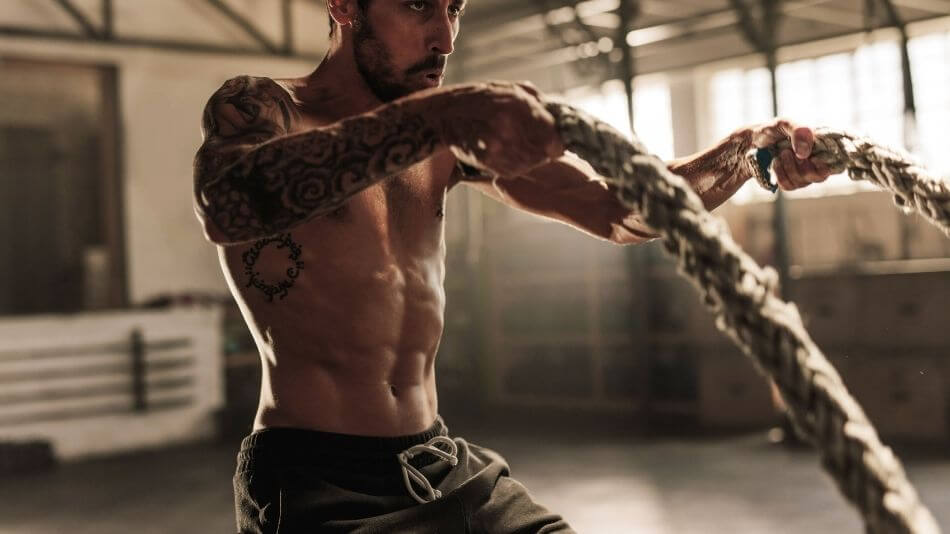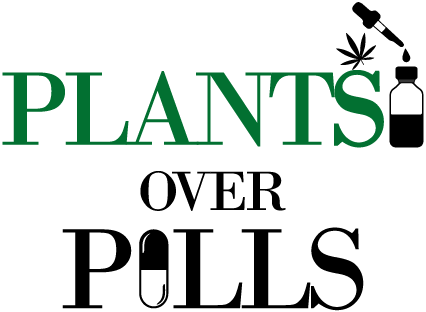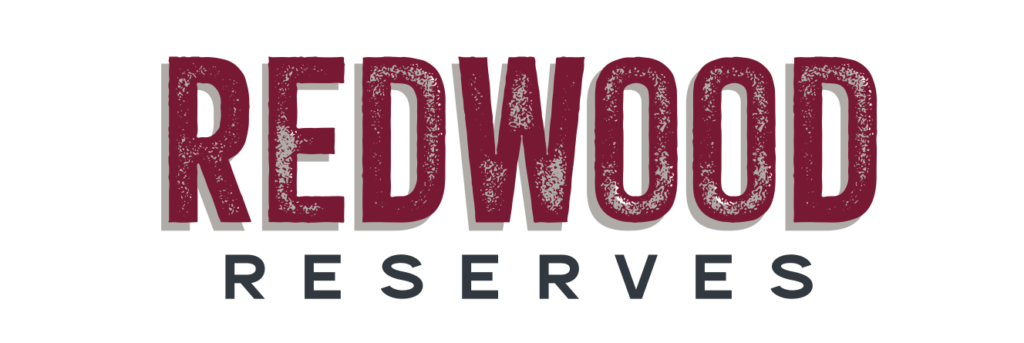Many of us are all too familiar with post-workout pain and injuries, but is CBD truly a viable treatment option? How do you best use CBD for muscle recovery?
Using CBD to treat muscle pain and help assist with muscle recovery is very much possible and beneficial for many individuals. How you use CBD for this purpose depends on many factors, including the injury in question as well as the effects you’d like to experience. It’s a very versatile experience.
Choosing the right product, the proper dosage, and the appropriate time to ingest your CBD can ensure that the experience you have is the one you were expecting. CBD is an excellent supplement for workout recovery if you use it correctly, and it can help you avoid a lot of the pain and discomfort that may come as a result of exercise. Still, there are things to be mindful of throughout the process of selecting and ingesting your product.
Current Research On CBD for Workout Recovery
CBD oil (and CBD products in general) has become a more specific and better-understood treatment option for various health conditions. As a result, research surrounding the topic has also increased. Our understanding of how CBD interacts with the brain and other parts of the body to help promote pain and inflammation relief allows us to extrapolate how we can utilize CBD products for workout recovery and injury prevention.
Before discussing how to use CBD to treat workout injuries or any research surrounding the topic, it’s helpful to understand what workout injuries might look like or how you might acquire one. Workout injuries can happen to anyone, even well-trained and conditioned athletes. These injuries can happen for various reasons, including overexercising, poor exercise form, and others. If you suspect that you’ve become injured due to exercise or feel pain while working out, it’s always best to immediately discontinue the activity. For a while, focus on other areas of the body or switch to low-impact workouts like swimming.
Common workout injuries may include:
- Muscle injuries: pulls, sprains, strains, etc.
- Shoulder injuries
- Knee injuries like runner’s knee
- Sprained or twisted ankles
- Wrist injuries
- Back pain
- Shin splints
- Tendonitis
Fortunately, most workout injuries, while painful, are easy to treat and can usually be resolved within a few days, weeks, or months. However, without adequate diagnosis and treatment, these injuries can worsen, especially if you continue exercising after your injury.
Even if you plan to use CBD to help you through the recovery process, you must be examined by and speak to a healthcare professional. It can be hard to identify what sort of injury you might have from the surface, and without the expertise of a doctor, it’s possible to mistreat or fail to treat a wound that needs attention.
When it comes to CBD for workout recovery, research is promising. Recent studies have shown that CBD has significant anti-inflammatory and neuroprotective properties in animal models, suggesting that it can impact human systems and produce real, tangible benefits. Some studies even show that CBD may help treat skeletal injuries and the complications that come along with them.
Often, a lot of joint or muscle pain you experience before or after working out isn’t due to a specific injury but rather from inflammation. Inflammation is usually your body’s response to a foreign contaminant, like a splinter or a germ. You may recognize inflammation by swelling as white blood cells accumulate in one area. However, sometimes your body creates an inflammation response when it’s unnecessary, often causing pain or swelling in a particular area. CBD is very effective in treating many types of inflammation. So, if an inflammatory response causes your athletic woes, you should certainly look into trying CBD to lessen the inflammation and aid your pain.
Research on how CBD interacts with other parts of the body, like the digestive system, is still preliminary. There isn’t a strong enough base of research to make any definitive claims or statements. However, what we do know demonstrates that CBD has at least some potential to be useful for many common workout injuries, even if it’s just in terms of pain relief and lowering levels of inflammation.
The research that suggests that CBD is beneficial for workout recovery is a good start, but we’ll likely see more significant changes over time. For now, we do know that CBD is an excellent tool for managing pain and promoting other healing practices. If you’re looking to use CBD to help you throughout your exercising journey, you’re likely to benefit in some way, even if it’s just in terms of mindset and attitude.
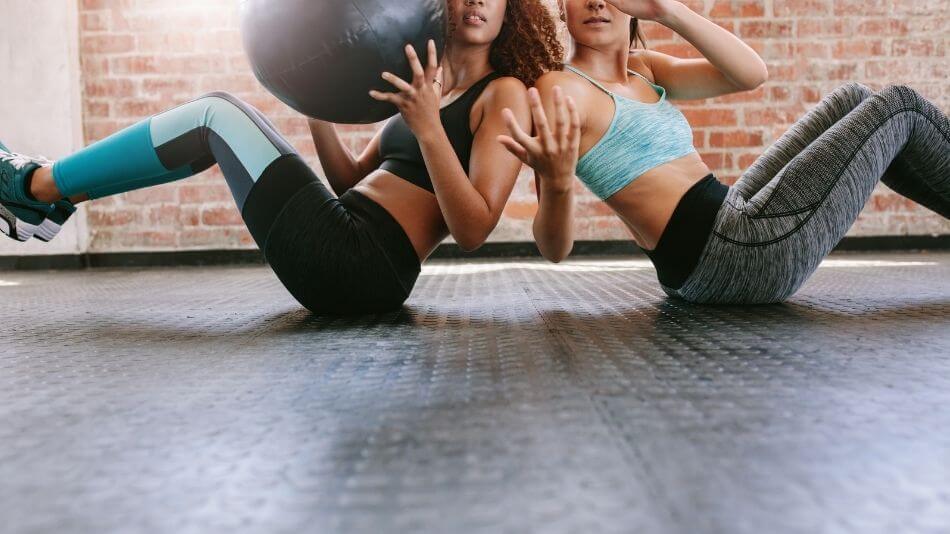
Should I take CBD before or after working out?
Those looking to utilize CBD to help them prepare for or recover from a workout may struggle to decide when it’s best to take CBD; after all, CBD offers benefits that can be useful during exercise and provides some that may make working out more difficult.
Overall, it’s perhaps most fair to say that when you take CBD should depend on what you’re hoping to achieve. For those focused on pain and inflammation relief, for instance, taking CBD before a workout may be essential to make moving more comfortable. For those looking to relax and ease soreness or pain due to a workout, using CBD after exercise may be ideal.
It’s important to note that CBD shouldn’t be used to mask the pain of exercise-related injuries or strains before a workout. If you’re experiencing pain due to exercise, ignoring signs of pain may put you at risk for worsening the wound and causing more damage.
If you do decide to use CBD before or after a workout, be sure to consider all the effects and side effects you may experience. Below are some common effects of CBD to help provide some insight on what to keep in mind:
- Lessened inflammation, pain relief
- Feeling relaxed and calm
- Lessened anxiety or stress
- Potentially an easier time falling asleep (though more research is needed on CBD and insomnia before we can make a definitive link)
Side effects of CBD use may include:
- Nausea
- Fatigue
- Lightheadedness, low blood pressure
- Moodiness or irritability
Another factor to consider when making your decision is the type of CBD product you’d like to use. Some forms of CBD may take longer to be absorbed in the body and, as a result, take longer to produce intended effects. Others have quicker, but potentially shorter-lived, effects. Depending on what sort of goal you’re looking to achieve, you may need to strategically time your CBD use to ensure that you feel effects during the timeframe you want to.
You may even decide to use CBD both before and after a workout to experience as many benefits as possible. No matter what you choose to do, it’s essential to be mindful of your dosages and ensure that you take only what you know you can handle – exercising is an easy way to injure oneself accidentally, especially if CBD is numbing you to physical red flags.
For those looking for long-lasting effects, products ingested orally, like CBD tinctures or CBD oil, are likely ideal. These products may take longer to produce the desired impact, so it may be wise to take them just before a workout to experience pain relief and lower levels of inflammation after you finish. On the other hand, you may need to plan ahead and take these sorts of products proactively to experience effects before you start your workout.
CBD products that tend to produce the fastest effects are ingested via inhalation, but these might not be ideal to use just before working out as they may irritate the lungs.
Ultimately, how you use your CBD products and when is up to your individual preference and set of goals. When in doubt, it’s always a good idea to consult a doctor or other healthcare professional with any questions or concerns.
How much CBD should I take for muscle recovery?
CBD products are great options for muscle recovery and pain relief for a multitude of reasons, but perhaps most notably because of their anti-inflammatory properties. If you do decide to use CBD to help speed up the recovery process or make it less painful, choosing an appropriate dose – that is, one that’s strong enough to produce effects without being too powerful or causing adverse consequences – is crucial.
CBD dosages can range anywhere from 5-10 mg a day up to 50 mg or more. It very much depends on your situation and the level of pain or inflammation you’re looking to treat. Many factors can impact what sort of dosage level is right for you, and it may take some level of experimentation to find the amount that gets the job done consistently.
Things to consider when choosing a dosage:
- Your body size (height and weight)
- The potency of the CBD product you’re using
- Your experience with CBD or other cannabis products
- The condition you’re looking to treat
- Your ability to deal with potential side effects at the time of consumption, especially if you’re using CBD products for the first time
In general, it’s best to start small and work your way up. If you’re completely new to cannabis and CBD products, you may find it best to start with very low doses to ensure that your products won’t cause adverse effects from the get-go. If you don’t experience negative side-effects but need a stronger dose, it’s usually safe to try out a more powerful consumption method.
You might also want to consider what type of product you’d like to use based on the amount of pain you’re in and what sort of experience you’re aspiring to. CBD oil, for instance, is a prevalent and attractive option for pain relief thanks to its powerful and long-lasting effects. CBD oil is also straightforward in terms of dosage; with an easy-to-see way to measure how much you’re ingesting, you can truly get a feel for what works for you and what may be too little or too much.
CBD products come in all shapes and sizes and range from cigarettes to patches to tinctures, so if a product like CBD oil doesn’t work out for you, it doesn’t necessarily mean that CBD, in general, can’t. Muscle recovery often goes hand-in-hand with lots of muscle pain, stiffness, and inflammation, all of which can be lessened by CBD use.
CBD can also help you feel better in other ways too as you recover. CBD may help you feel more relaxed, for instance, and help you have an easier time falling or staying asleep. CBD may also increase your appetite or make you feel more up to participating in hobbies or other activities.
Overall, the amount of CBD you take depends on many factors, perhaps most importantly what you’d like to gain by using CBD or what condition you’re looking to treat. In terms of muscle recovery and treating muscle pain, moderate doses may be appropriate for many, but it largely is up to your individual preference and experience. Start with low doses and work your way up to find the dose that best treats your symptoms without causing any unnecessary or adverse effects.
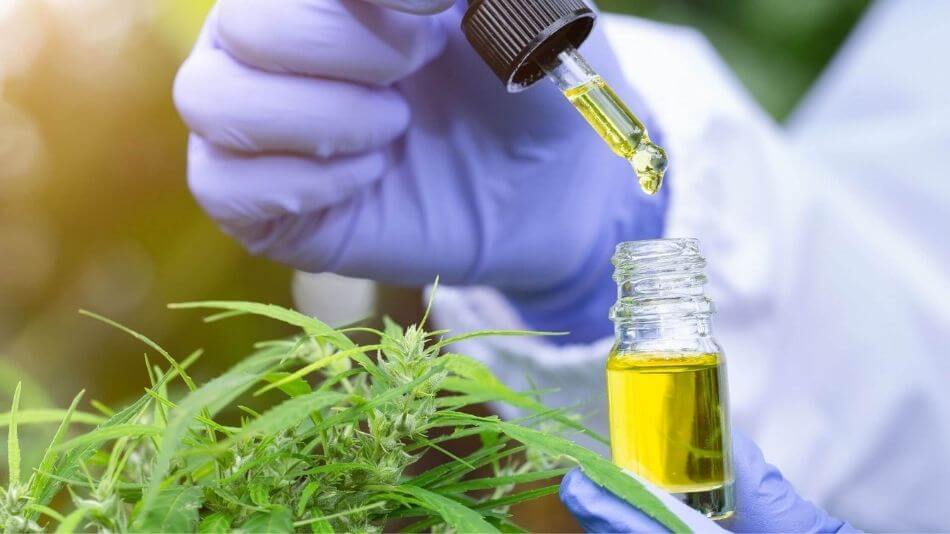
Does CBD help you heal faster?
CBD might not necessarily speed up the actual healing process in a biological sense – that is, it doesn’t stimulate your body to work faster to repair damaged tissue. But CBD’s anti-inflammatory properties make it an excellent option for pain relief and can help make the healing process more bearable. In combination with other beneficial practices, like resting injured areas of the body, CBD can certainly help you heal as efficiently and painlessly as possible from a variety of maladies.
When it comes to muscle recovery, CBD is a very useful tool. Not only can it help with pain relief, it can help promote other areas of growth and healing (and help you get back on your feet faster). CBD is very effective in reducing the inflammation that causes a lot of the pain and discomfort we associate with muscle injuries – redness, swelling, tenderness – and helping us feel more relaxed.
Using CBD throughout the recovery process is likely to be a good strategy for many individuals because of these anti-inflammatory properties. Other methods of addressing chronic pain and inflammation, like pain medications, can present other complications and concerns that CBD doesn’t, making it a more approachable option for many.
It’s important to clarify again that CBD doesn’t do anything to physically speed up the rate at which your body repairs damaged tissue or cells. Instead, CBD can help you feel better faster by lessening the pain you feel as you heal and helping promote health in other ways (relaxation, better sleep, increased appetite, etc.). Something that does often speed up the healing process is maintaining a healthy lifestyle with nutritious food and an effective workout regimen. Remember that you can always consider low-impact workouts like swimming or yoga if you are struggling to work out right now.
CBD shouldn’t be used to try and cover up or ignore exercise-related injury pain so that you can continue to work out, though; if you’re experiencing pain, it’s always best to take a break and rest the injured areas. If you’re able to, it may even be most advisable to consult your doctor before making decisions about treating your injury. Sometimes a medical examination is necessary to identify all areas of concern.
If you do decide to use CBD to help you, whether it be CBD oil or another product, it’s crucial to keep dosages in mind. By choosing an appropriate dose for your individual goals, you’ll be in the best position to set yourself up for success and avoid side effects.
In summary:
- When you discover you’re injured, stop exercising and begin resting the area. If necessary or if you’re able to, visit a healthcare professional for an exam.
- Take it easy in the days following the injury. Try to avoid unnecessary stress on the area and follow your doctor’s instructions if you have any.
- If you decide to implement CBD into your recovery plan, choose an appropriate product for your goals. For pain relief, CBD oil is a standard option.
- Choose a dosage that’s appropriate for your body and your health concerns. If you’re new to CBD or aren’t sure where to begin, it’s usually best to err on the side of caution and begin with a low dose (of around 10 mg or less, for example), then work your way up if necessary.
- Use your CBD products as needed in combination with rest and any other techniques or instruction that your doctor may have provided
Does CBD help with muscle growth?
CBD can help muscle growth indirectly by promoting healthy sleep, which is necessary to grow and heal muscles. As research on CBD and its impact on sleep patterns and sleep quality evolve, so does our understanding of how CBD can be used to treat various bodily processes.
CBD is known to promote feelings of relaxation, stress relief, and lessened feelings of anxiety, all of which can make it easier to fall and stay asleep. It’s also believed that CBD may play a role in helping individuals reach more profound levels of sleep or stay there longer. These deeper levels of sleep, like REM (rapid eye movement) sleep, are fundamental periods in which the body repairs, heals, and grows itself.
So, if CBD is able to help individuals achieve deeper levels of sleep more frequently and for more extended periods of time, it may be able to help things like muscle growth and muscle recovery take less time than if you weren’t using CBD products. CBD is also likely to help make the pain and inflammation that come along with muscle pain or muscle growth more bearable.
CBD on its own may not build muscles, but it can be a great supplemental tool. Muscle growth depends on many factors, including exercise and nutrition, in addition to things like sleep. To grow your muscles as efficiently as possible, it’s likely that you’ll need to use a combination of products like CBD and other techniques.
As mentioned, research on CBD and the way it interacts with our brains and our bodies is still evolving. Research on cannabis products in general has been lacking for some time thanks to its illegality. However, as CBD and other cannabis products emerge as more mainstream ways to treat pain and chronic conditions, we’ll likely see an increased understanding of how much CBD can work to help muscle recovery and growth.
For now, though, it’s relatively safe to say that CBD can undoubtedly help muscle growth, but it won’t cause or significantly speed it up on its own. On top of other suitable techniques and mindfulness, CBD can help you achieve your goals as efficiently and quickly as you can while remaining healthy and safe.
If you’re still unsure about using CBD or have any lingering concerns, speaking with a healthcare provider is always a good idea. This is especially true for those with more severe or chronic conditions or those who take prescription medications, as CBD use can interact with these processes and make them less or more effective. Self-diagnosing and treating muscle injuries can sometimes lead to further complications and almost always leads to unnecessary pain, so even if it seems like a minor injury, it’s typically best to have it looked at nonetheless.
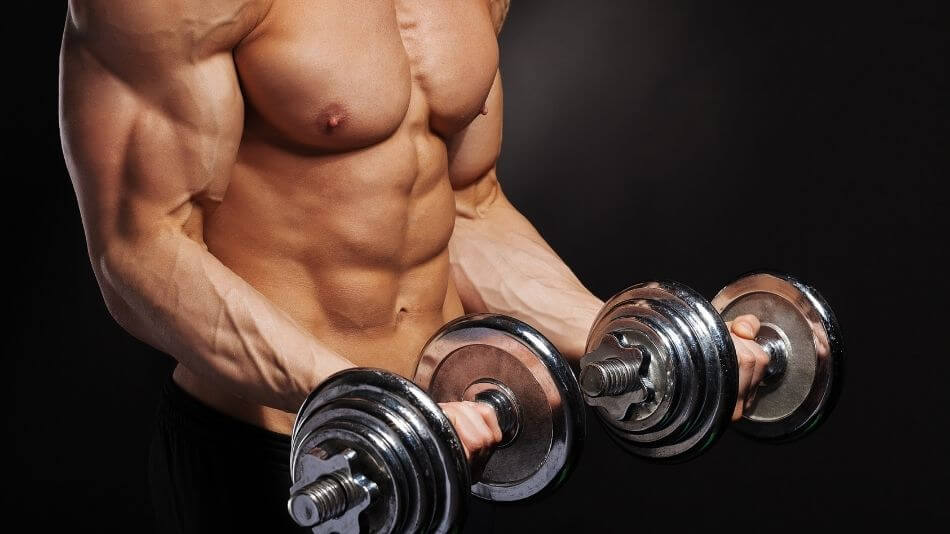
Takeaway: CBD is a Great Tool for Workout Recovery
Workout injuries and pain are unfortunately common parts of exercising, and those who remain active throughout their life will likely run into these problems from time to time. There is some hope, though: these injuries are often easily identifiable and treatable, and many supplemental tools, including CBD oil and other CBD products, are available to help make the process as quick and painless as it can be.
How CBD works to help treat pain and speed up the recovery process is still being studied and understood. Still, current research suggests that CBD does indeed have anti-inflammatory and other properties that can help reduce the symptoms that come alongside injury. We also know that CBD can help promote better sleep, a better appetite, and a better mentality, all of which can help promote faster healing within the body.
If you’re looking to use CBD to help manage pain before or during a workout, you’re also in luck. CBD can be used at just about any point in the day, though you may need to adjust your dosage accordingly. Products like CBD oil can help manage pain and inflammation for hours at a time, which is a lifesaver for those who struggle to exercise because of chronic pain.
CBD oil, in particular, is famous for pain relief thanks to its durability and strength, and you’ll likely find that it’s one of the best options to use for muscle and workout recovery. Still, if CBD oil isn’t right for you or if you want to use something faster-acting before or after your workouts, other options are available. To browse through great CBD oil options, comprehensive reviews on a multitude of CBD products, and more information all about cannabis products in general, be sure to check out our directory. We’ve done all the hard work of hunting down high-quality products from reputable sellers for you.
As is the case with any sort of major change to your lifestyle, health, or medications that you may take, it’s never a bad idea to consult a doctor before using CBD, especially if your goal is to treat an injury. Workout injuries can certainly be treated in part by CBD, but you may need further intervention in order to properly address your injury or prevent it from causing other complications in the future.
CBD also has the potential to interact with some prescription medications and make them less effective. Side effects are generally mild when it comes to CBD, but they can and sometimes do happen, so being aware of them is recommended. You shouldn’t ignore things like nausea, fatigue, or irritability that come on after CBD usage.
Overall, CBD is indeed a fantastic tool for workout and muscle recovery and promoting good mental and physical health overall. If you decide to use CBD for workout recovery, be sure to do so carefully and thoughtfully, and never hesitate to reach out to a professional if things get worse or don’t get better over time. Being mindful of your dosages is also an important step for avoiding side effects and ensuring that your experience is as powerful and long-lasting as you need it to be.
CBD oil and other CBD products make everyday inconveniences like workout pain, muscle aches, and discomfort more bearable. They also have the potential to improve other aspects of life as well. If you think you’d benefit from CBD use, don’t wait – start the process of exploring products and experiences today.
